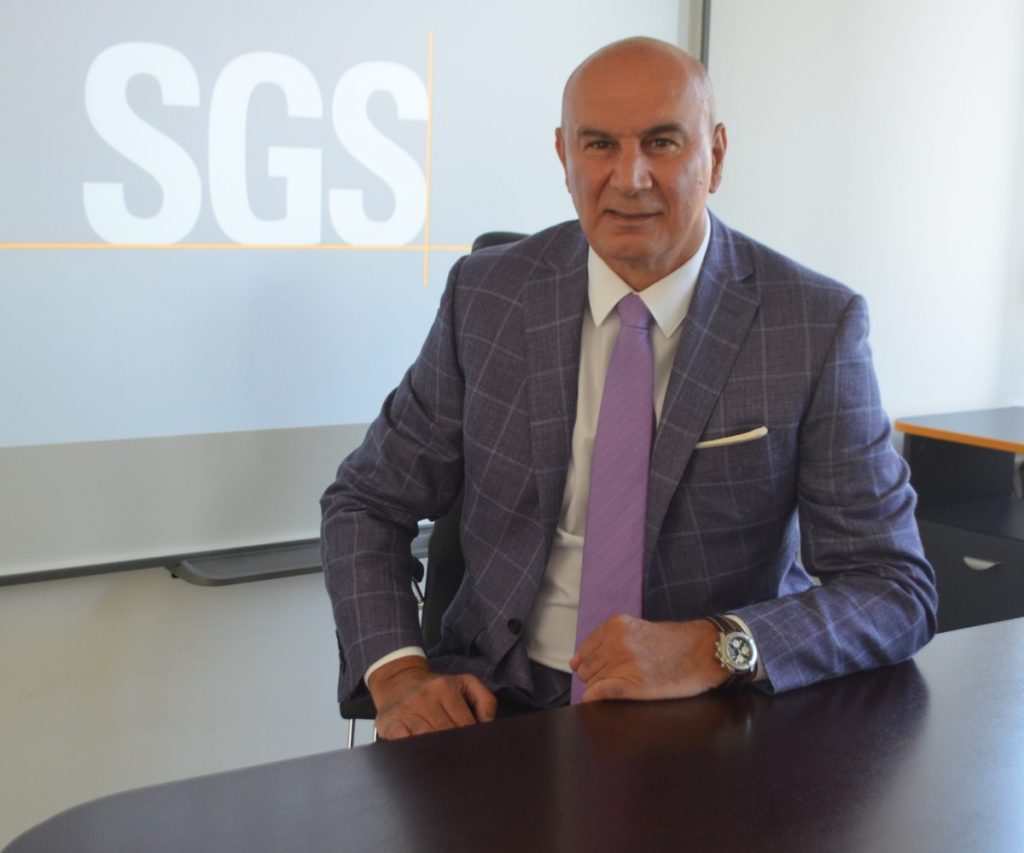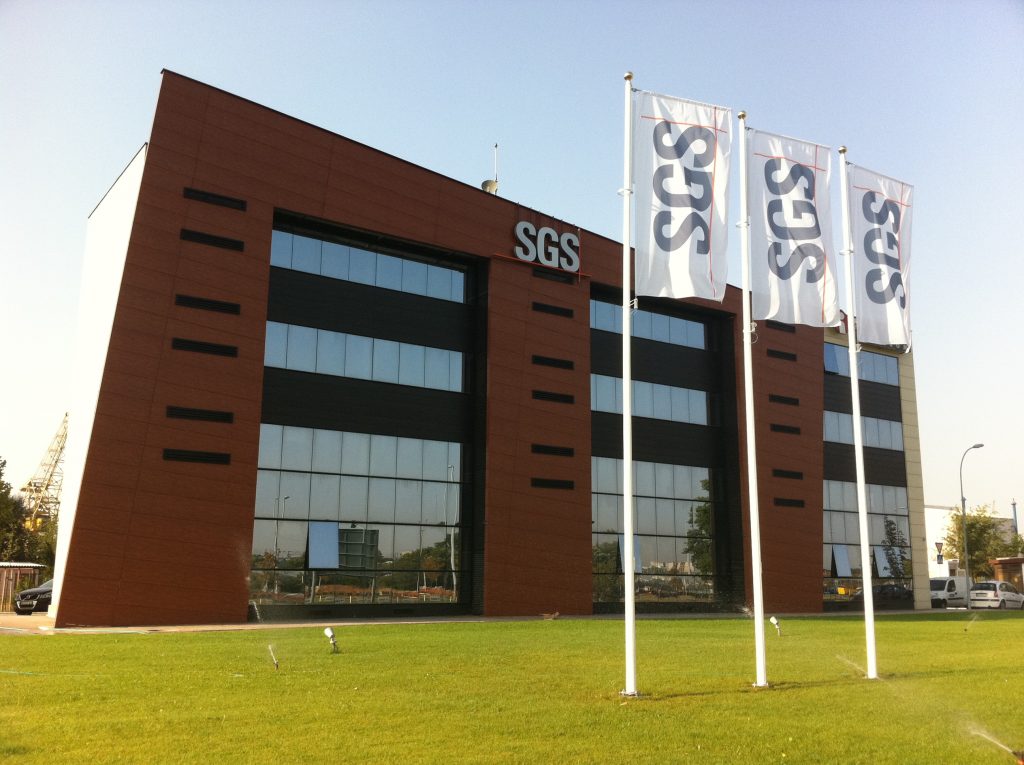SGS Belgrade employs over 240 full-time workers and provides its services through 5 business lines – Industrial & Environmental, Connectivity and Product, Health and Nutrition, Natural Resources and Knowledge.
Founded in 1878, SGS is the leading global company engaged in activities related to control, verification, testing and certification. As a full-fledged member of one of the world’s most prestigious certification companies, SGS Belgrade was founded in 2001. Soon after, the company started to rapidly develop and conquer new markets in the segment of specialized services. We talked to the renowned expert and director of SGS Belgrade, Marinko Ukropina, about the company’s two decades long successful operations, as well as the importance of introducing standards in business.

This year you are celebrating the company’s 20th anniversary. Could you tell us about SGS Belgrade’s development stages?
Twenty years ago, SGS Belgrade started its development through two business lines – Agriculture and System and Services Certification. We initially provided our services under the auspices of a management system control and certification body, through the continuous development of our laboratory. As the regional market developed, we have also developed as a company. Today, SGS Belgrade employs over 240 full-time workers and provides its services through 5 business lines – Industrial & Environmental, Connectivity and Product, Health and Nutrition, Natural Resources and Knowledge. We provide a wide range of services, and the validity of the methodologies we use for the implementation of services is continuously validated by the Accreditation Body of Serbia for the ISO 17020, ISO 17021, ISO 17024, ISO 17025 and ISO 17065 standards. We also provide certain services under international accreditation primarily in management system certification.
In terms of the certification segment, as a certification body, SGS Belgrade today has over 1,200 valid certificates, most of them in the field of management system certification. Our clients are usually the most successful companies and leaders in their industries. Thanks to the constant development of our human resources, we can now provide certification services continuously, while adhering to high professional standards due to the implementation of internationally validated methodologies for this type of service.
As a certification body, SGS Belgrade today has over 1,200 valid certificates, most of them in the field of management system certification
You are the director of SGS for Serbia, Croatia, Slovenia, Bosnia and Herzegovina and Montenegro. Do these countries differ in understanding the importance and application of business standards?
The EU market, such as the Slovenian and Croatian markets, is less complex than in other countries in the region that are not members of the EU. In Slovenia and Croatia, the number of certification bodies is approximately the same as in most EU Member States, while in our country, the number is incomparably higher. On regulated markets, it is implied that laws and regulations and appropriate technical standards must be applied in business, so that the corporate culture and market differences in terms of competition, customers and other stakeholders are validated by having a management system certificate. We still have a long way to go in terms of raising the level of understanding of the importance of the essential implementation of business standards. When you genuinely apply standards, one of the advantages is that you can pass customer checks very effectively, which is a trend in EU countries. If you apply standards only formally, customers notice that very quickly which can lead to customers losing trust in your supply chain.
How aware is the business sector in Serbia about the importance of introducing quality systems in their operations? To what extent do they do it for formal reasons, and to what extent because they out want to change and develop their business?
It is important to understand that the best proven international practices for certain areas such as quality, environmental protection, occupational safety and health, information security, food safety, etc., are the basis of the standards. Management systems should be a tool that management uses to ensure long-term sustainability and profitability in business while meeting the requirements and expectations of the wider community. This is not just writing down procedures and filling out some forms which some companies see as a hindrance to their daily operations. There are excellent examples in our region whereby companies have properly applied management system standards and as a result, have been constantly developing their business. The Plan-Do-Control-Act methodology, which is the basis of these standards, is actually a life philosophy. If it is interesting to apply and understand it in everyday life, why is it difficult to understand and apply it in business life?!

What types of certificates have you issued the most so far, and which industries have you issued them to the most?
We have issued the largest number of certificates for the ISO 9001 standard, and we have also issued a substantial number of certificates related to food safety, such as HACCP, FSSC, IFS, BRC, certification of organic products, Danube Soy, etc. The pharmaceutical industry consistently implements high standards and has a systemic approach, as do the food sector, IT industry and the energy sector. It is very important to note that large logistics systems are continuously working on improving their management systems. In the education segment, most of the people who attended our SGS Academy in Serbia came from the automotive industry.
The validity of the methodologies we use for the implementation of services is continuously validated by the Accreditation Body of Serbia
How much have your services changed or broadened due to the coronavirus pandemic and the growing need for different IT solutions?
As a global leader in the TIC industry, SGS has established an efficient crisis communication process between Head Office and all other SGS affiliates worldwide. Continuous review, harmonization and implementation of the Business Continuity Plan, have helped us to efficiently manage a very efficient and complex system such as SGS during the pandemic-induced crisis. In addition to improving the SGS business model, we have developed many services worldwide during the pandemic-induced crisis, one of them being Hygiene Monitoring. In Serbia and Croatia, we have successfully completed a project with Lidl in this segment. Also, as a certification body, SGS Belgrade, provides certification and verification services in line with various information security standards, such as SRPS ISO / IEC 27001: 2014 – Information security management systems, SRPS ISO / IEC 20000-1: 2018, Information technologies – Service management, SRPS ISO / IEC 27701: 2019, Security techniques for privacy information management, SRPS ISO / IEC 27017: 2019, Information technology — Security techniques — Code of practice for information security controls for cloud services.
Also, in cooperation with our laboratories in Austria and Spain, we can provide very specific cybersecurity services. It is very important to note that these standards do not apply only to the IT Industry, but that they can be applied to all other industries too. The development of digitalization implies bigger responsibilities for data and information management. Establishing a systematic approach in this area by applying these standards is certainly the best and proven way.
You have worked a very long time in a successful and innovative business. What challenges await you in the future?
First of all, we need to constantly develop human resources in our company. This will help us to efficiently implement new services and process methods that are being developed at the global level in SGS. All of us who work at SGS have the privilege to witness global trends in the TIC industry and to apply them in our region. Thus, in addition to developing our company and the people who work for it, we can contribute to the development and improvement of the economic environment in the Republic of Serbia, which SGS Belgrade has done in the past 20 years and will continue doing so in the future.